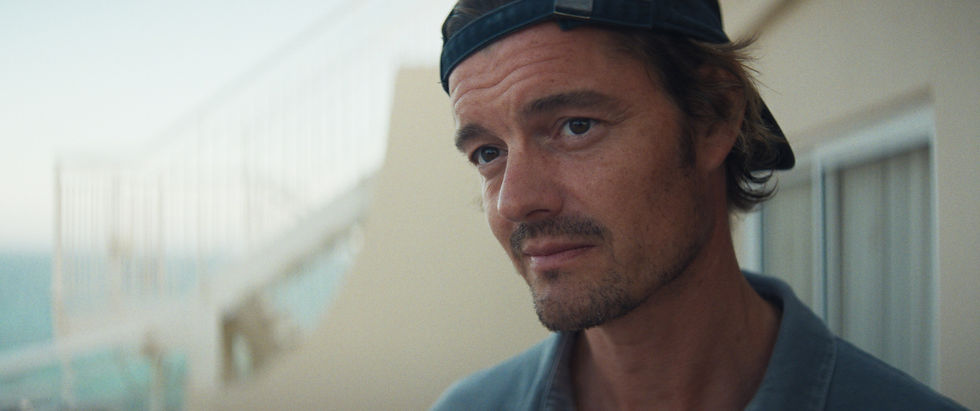PARASITE
- Susan Gray

- Jul 24, 2020
- 3 min read
Updated: Aug 20, 2021
DIRECTOR: BONG JOON HO
CAST: CHO YEO JEONG; SONG KANG HO; LEE SUN KYUN
CERTIFICATE 15; 131 MINUTES
SOUTH KOREA; RELEASE 2020
ENGLISH SUBTITLES
IN CINEMAS JULY 2020
REVIEW by SUSAN GRAY
PODCAST with KATHLEEN BONDAR https://www.capitalreviewer.com/podcast/episode/cc39aa3e/parasite-in-black-and-white
Worrying about smelling poor is a niche concern, but if you have ever been affected, it’s on your mind 24/7. Along with the fear others will guess the faded clothes have been washed and dried within an inch of their lives, and your shoes’ uppers could part company with the soles at any moment. Every aspect of presentation to the outside world hangs by a thread. It’s quite the cognitive and emotional load. So towards the end of Parasite, when Ki-taek (Song Kang-ho), patriarch of the Kim family overhears his employer saying ‘You know when you boil a rag, it smells like that,’ the audience can sense a reckoning is on its way.
Parasite in Back and White is an incredible piece of film making, cutting to the bone about what it is to be a twenty first century human, on one level in charge of our own narrative and self presentation like never before, yet also buffeted by forces older and larger than ourselves. Boon Jong Ho has created an inverted version of Jane Eyre, and used it to examine what it’s like to be on the rough end of the Asian Tiger economy’s tail.
We first meet the Kims through their laundry: socks drying in front of their semi basement’s sole window to the outside world. Father, mother Chung-sook (Chang Hyae-jin), son Ki-woo (Choi Woo-shik) and daughter Ki-jung (Park So-dam) are scrabbling to survive, perching in their dingy bathroom to siphon free wifi, and assembling hundreds of wonky pizza boxes for cash. When Ki-woo is offered work as a substitute English tutor by his friend Min, it seems as if his luck has changed. But Ki-woo’s initial instinct to question the offer, indicates deep down he knows the offer is poisoned: ‘Why ask a loser like me?’
But putting his misgiving to one side, he enters the world of the Park family, as tutor to their teenage daughter Da-hye. In a film of amazing performances Cho, Yeo-jeong give a perfect turn as the emotionally tone deaf Yeon-kyo, mother of Da-hye and hyperactive younger brother Da-sing. Pupil tutor boundaries are soon transgressed. Then Ki-woo quickly levers in the savviest of the Kims, Ki-jung, to become tutor to the ‘mini Basquiat’ Park son. Shrewd googling allows Ki-jung to pass herself off as an art therapist and charge even more.
Coming from such a united family, the Kim children do not keep the opportunities to themselves, but through machinations worthy of a murder mystery weekend, create openings for their father and mother, as driver and housekeeper. There is something of the evil eye in this section of Parasite, with the punch drunk Kims wanting to possess whatever they put their eye on, momentarily blinded to the costs. Bringing Ki-tiak into horn locking proximity with the opposite patriarch Mr Park is a fabulous, slow burn explosion. Park draws him into mateyness for the pleasure of rebuffing him, and takes pleasure in reminding him that emotional labour is part of what he is paid for.
The beautiful architect designed house where the Kims toil and the Parks relax, becomes a fully fledged character as the drama unfolds. Finally Ki-woo has to decide for real, rather than narrative purposes, whether the family that has sustained and nurtured him can be part of his life, or whether it must be exorcised, like the smell of poverty, in order for life to progress.
And the operatic score underlines the action beautifully, with the on screen performance of Handel's Mid Caro Bene as the denouement unfolds, an outstanding delight.
The black and white version of Parasite foregrounds the characters and their actions, allowing their universal moral dilemmas to be even more resonant.
PARASITE TRAILER:
@ParasiteMovie
@ArtificialEye








